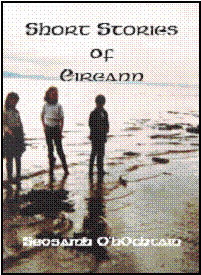
|
Choice Publishing Book Store |
|
About the Book
The images drawn from the past in these short stories should I hope be familiar to each reader. The issues explored are real to the writer. For example, why should so many people feel worthless, and why were so many citizens disrespected? The words are drawn from a deep well of personal life experiences out of an Ireland of the 1950s, and the tragedy of a hundred years earlier. But while they are essentially Irish stories they will be familiar to majority of human beings worldwide. The underclass created in an American ghetto in the richest country in the world is no different to the workhouse inmates and that culture developed in Ireland in 1840s/50s. This feeling of degradation, so ingrained in the human psyche, that makes a person feel so insignificant needs to be challenged in every age. The institutions and its operators on their high thrones that make a brother or sister tremble in its presence need to be examined. Each of the stories in this book was sparked by some injustice delivered overtly or covertly on a citizen. The question that needs to be asked is why does a native have to feel like a speck of dust in the vicinity of his own institutions? Rosa Parks, the champion of black America said, for example, “I am tired. I keep thinking about my mother and my grandparents” Rosa was tired of being treated as an outcast because of the colour of her skin. She made a stand and this helped her people. The short stories in this book are drawn from memory, experiences of life, and from a feeling of dejection. The understanding of rejection is not an isolated one but so much part of our culture. The image of the big house in Ireland, surrounded by high walls and fields of muck for the natives beyond, is a driving force. It is scenes like this from the “Great Hunger” in our land that rivets us to the past and brings tears to the eyes. My hope in penning these words is to give the underdog of this life a voice and the people who died in the workhouse of hunger a place in everyday thought. The “Coffin Ships” with their cargo of human misery are so much part of our heritage, and the man of today who walks stooped, needs not. We should not internalise the blame, but put it in its rightful place. The weak will never be able to write their agonies on paper, but those thrown out by the strange landlords have a voice in these pages.
About the Author
|

|
Short Stories of Eireann
By Seosamh O’hOchtain
ISBN: 978-1-905451-80-7
Price: €15.00
|

|
Seosamh O’hOchtain the author has brought together stories influenced by his life in the Inishowen area of Donegal. He was born in Inishowen of Inishtrahull blood, the island to the north. His time on the emigration trail and teaching in Derry City is explored in these stories.
His first book named Flann dealt mostly with the discovery of his own identity. The short stories, gearr scéalta, is again an exploration of the social history of his native community. He was always conscious of the fracture of his whole area, which was brought about by poverty. For example, each home in his district was emptied of youth during the 1950s because of the economic circumstances created by years of exploitation.
Seosamh left his native land at sixteen years of age in the year nineteen and sixty. He took the cattle boat from Derry to Scotland. He worked at many menial jobs and then the big break came in the year nineteen and sixty- two when he emigrated to the United States of America. Here he discovered his strengths as he got an education and then he returned to his land to teach. He spent twenty-eight years in his teaching profession during the recent conflict in the land.
After retiring from teaching Seosamh studied Clinical and Pastoral Counselling and he became a professional counsellor. |